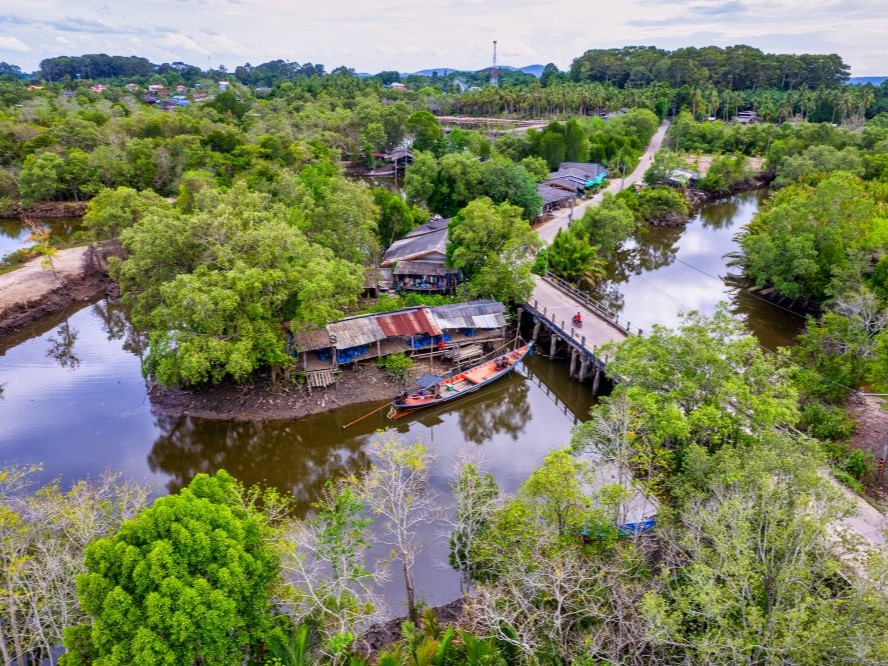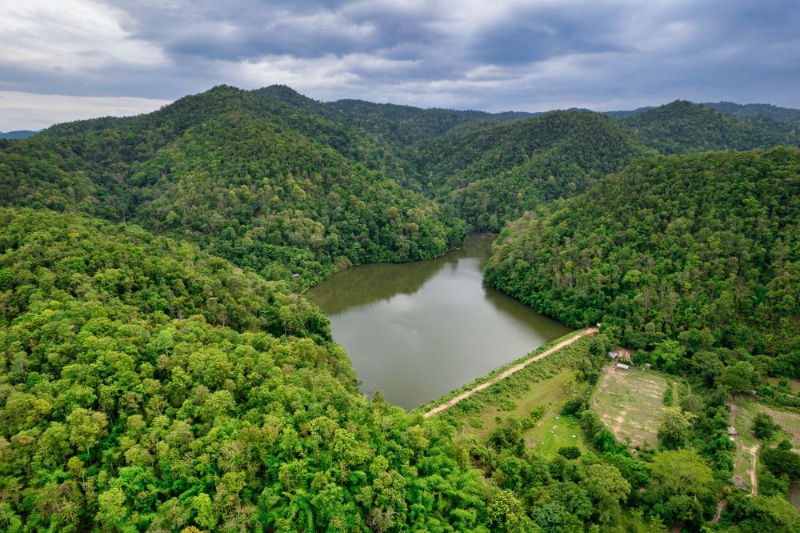Community forest engagement in Thailand

Landscape of Nuea Nam Community Mangrove Forest in Southern Thailand. Credit - RECOFTC
From the ground up: Strengthening biodiversity management and conservation in Thailand through community forest engagement
Community forests in Thailand are teeming with flora and fauna vital to community livelihoods and healthy ecosystems. As buffer zones of protected areas, these forests are crucial to biodiversity conservation. However, the community potential in biodiversity management and conservation has not been adequately explored. It remains largely untapped as there is a lack of biodiversity data in community forests.
At RECOFTC, we strongly believe in empowering communities through capacity development for community-based forest management. We initiated the Citizens’ Forest (CF) Master workshops in 2023 to build community capacities in biodiversity data collection, analysis, monitoring and utilisation for biodiversity-integrated community forest management planning.

At the core of the CF Master initiative is strong collaboration among different actors. As the project coordinator, I have worked alongside over 50 community members and local people or ‘CF Masters’, as well as active civil society organisations (CSOs) in 10 target provinces across Thailand. Their knowledge of the community forests and determination to protect and sustainably manage biodiversity have been instrumental to our significant progress. The CF Masters are now empowered as key change agents who actively facilitate evidence-based community biodiversity management planning.

Collaboration with experts is another pillar of our achievement. Our partner, the Zoological Society of London (ZSL) in Thailand, specialises in wildlife conservation and has greatly contributed to filling the gap in fauna documentation, which is usually lacking in the community forestry sector.
Recommendations for future activities
- Community discussions for forest management planning have not fully considered some of the collected biodiversity data. Ensuring community forest management plans are fully informed by the collected data will be our top priority.
- Some data collection tools have proven too technical for the CF Masters, so simplifying the tools and methods for more practical application will be our other top priority.
- We plan to shift fieldwork and training periods to Thailand’s cooler months for a more conducive learning environment.
- While we strive for social inclusion, women and youth make up around 30% of the first batch of CF Masters. We will explore alternative methods to increase participation from women, youth and other marginalised groups including those without land ownership.

Looking ahead
By fostering the development of biodiversity data inventory in community forest management, we aim to not only empower forest-reliant communities but also contribute to national-level biodiversity conservation. As the project is approaching completion early next year, we are preparing to connect the CF Masters with policymakers.
Through our policy forum, CF Masters will have opportunities to share lessons learned and advocate for the integration of biodiversity management into Thailand's community forest management framework. Ultimately, we envision a future where communities become the stewards of our irreplaceable ecosystems. With their active participation, Thailand's biodiversity can continue to thrive for generations to come and strengthen our resilience to the climate crisis.
Written by Atcharaporn Daisai. For more information on this Darwin Initiative C&C project DARCC029, led by RECOFTC, please click here.




 Back
Back